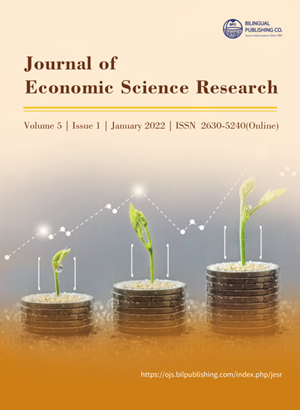Political Economy of Global Environmental Governance Institutions: Future Collaborations between China and USA
DOI:
https://doi.org/10.30564/jesr.v5i1.4365References
[1] Zhong, R., Jan. 10, 2022. 2021 was Earth’s fifth-hottest year, scientists say. The New York Times. https:// www.nytimes.com/2022/01/10/climate/2021-hottest-year.html.
[2] Carrington, D., Jan. 10, 2022. Climate crisis: last seven years the hottest on record, 2021 data shows. The Guardian. https://www.theguardian.com/environment/2022/jan/10/climate-crisis-last-seven-yearsthe-hottest-on-record-2021-data-shows.
[3] Dennis, B., Joselow, M., Jan. 10, 2022. U.S. emissions surged in 2021, putting the nation further off track from its climate targets. The Washington Post. https://www.washingtonpost.com/climate-environment/2022/01/10/us-emissions-surged-2021-puttingnation-further-off-track-its-climate-targets.
[4] Beusch, L., 2022. Responsibility of major emitters for country-level warming and extreme hot years. Communications Earth and Environment. 3(7), 1-7.
[5] Hochstetler, K., Milkoreit, M., 2014. Emerging powers in the climate negotiations: shifting identity conceptions, Political Research Quarterly. 67(1), 224- 235.
[6] Biden, J., 2020. Why America must lead again, Foreign Affairs. 99(2), 64-76.
[7] Bernstein, S., 2020. The absence of great power responsibility in global environmental politics. European Journal of International Relations. 26(1), 8-32.
Downloads
Issue
Article Type
License
Copyright and Licensing
The authors shall retain the copyright of their work but allow the Publisher to publish, copy, distribute, and convey the work.
Journal of Economic Science Research publishes accepted manuscripts under Creative Commons Attribution-NonCommercial 4.0 International License (CC BY-NC 4.0). Authors who submit their papers for publication by Journal of Economic Science Research agree to have the CC BY-NC 4.0 license applied to their work, and that anyone is allowed to reuse the article or part of it free of charge for non-commercial use. As long as you follow the license terms and original source is properly cited, anyone may copy, redistribute the material in any medium or format, remix, transform, and build upon the material.
License Policy for Reuse of Third-Party Materials
If a manuscript submitted to the journal contains the materials which are held in copyright by a third-party, authors are responsible for obtaining permissions from the copyright holder to reuse or republish any previously published figures, illustrations, charts, tables, photographs, and text excerpts, etc. When submitting a manuscript, official written proof of permission must be provided and clearly stated in the cover letter.
The editorial office of the journal has the right to reject/retract articles that reuse third-party materials without permission.
Journal Policies on Data Sharing
We encourage authors to share articles published in our journal to other data platforms, but only if it is noted that it has been published in this journal.




 Shujian Zhang
Shujian Zhang

